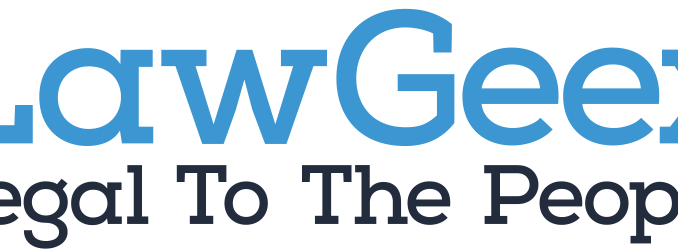
Israeli legal AI company LawGeex may not be that well known to lawyers in the UK, but it is actually one of the more well-established cognitive engines on the legal market, having launched in 2014.
It’s also had a different business model to some other AI companies in that its cognitive engine provides contract review services not just to large enterprises, but is also targeted at individuals and SMEs with relatively modest budgets.
Artificial Lawyer caught up with co-founder and CEO, Noory Bechor to find out where the company has got to in the last few years and what’s next.
The Origin
Noory Bechor started out, as many legal tech founders do, as a commercial lawyer. In his case working for one of the largest law firms in Israel.
He worked with VCs and tech companies. He also did an MBA. In many ways one could say that his future was set, if he wanted it to be set. But, things weren’t going be that simple.
He had learnt a lot initially as a paralegal about the challenge of reading contracts all day. And what he found was to have a profound impact on the course of his career.
‘My job then was to summarise contracts and add the key information into the CRM system. It was so mundane,’ he explains. ‘I could see that there was so much room for automation.’
The thoughts about automation stayed with him as he progressed in his career as a lawyer.
‘There was no single moment that made me make my decision to leave. But, it was like the Myth of Sisyphus. It just became more and more evident,’ Bechor says. ‘It was like banging your head against a wall.’

So, one day he decided to change things and left, even though that meant giving up on the partner track inside a law firm.
He adds that it was ‘a big deal’ to leave. He says he loved his work for the most part and also enjoyed doing the big deals with VCs and tech clients.
But, something had to change in the way contracts were created and reviewed. And Bechor believed he had the answer: people needed to use AI.
Bechor teamed up with a tech friend who understood the technology, Ilan Admon, who is now CTO, and the rest, as they say, is history.
Where Are They Now?
LawGeex has a focus on the ‘pre-signing phase’ of a contract’s life. In effect the AI system helps with the negotiation phase.
The system reads the whole draft document, compares it to models of this type of contract and reads the clauses in the document. It then tells you what may be missing, what is of most importance and what may need to change or be checked. If there is a missing clause the system will provide sample language to use.

Although this is a legal tech product and the focus is legal documents, the target audience is not always lawyers, nor law firms.
The system could be of use to executives inside companies who want to review a contract, but perhaps don’t want to bring in a lawyer, whether external or inhouse to work on it. Or it could be a freelancer who certainly would face a challenge in paying for a lawyer to review a work contract. Though, that said, today clients include both law firms and inhouse teams.
At present the focus is mostly on contracts in the US as this is a huge part of the global legal market. But there are plans to offer contract review in other jurisdictions. The company actually already has some users in the UK.
It’s also worth noting that the company literally has thousands of clients. That may seem impossible, given that some AI cognitive engine companies can count their major law firm clients on one or two hands. But, LawGeex has a different model and provides AI cognitive review services to individuals as well as large businesses. That allows a far greater market to be tapped.
For example, a freelancer can review two contracts per month for $79. A small business can review six contracts a month for $199, where contracts are: NDAs, service agreements and employment agreements.
Where Next?
The company received $2.5m in investment from two VCs, Lool Ventures and LionBird, and an angel investor. Bechor is bullish about the future.
‘We still have a very long way to go with AI. We are really just scratching the surface with what AI could do at the moment,’ he says.

Bechor also points out the many large companies want to see their legal work conducted more efficiently. He states: ‘If the legal work is not efficient, then the business is not efficient.’
Contracts plays a key part in business efficiency. This is because contract review is a bottleneck to corporate action. Slow review, or weak review systems, lead to bad deals, or deals being delayed. That is bad for business. Bad contracts or badly reviewed contracts can hurt individuals’ and SMEs’ businesses as well.
Bechor adds that they now have a staff of about 20, with a sales person in the US. They also have a partner from US law firm MoFo, Bruce Alan Mann, on their advisory board.
‘The legal industry is undergoing a very heavy period of commoditisation. Everything is moving faster,’ he concludes.
His goal is to see LawGeex as at the heart of this changing legal market and to provide legal AI to the people.